HOME FINANCING IN GERMANY
A COMPLEX PROCESS MADE EASY
Buying property in Germany as an expat? It’s a serious financial step — but not an impossible one. While the German mortgage (Baufinanzierung) system is conservative and documentation-heavy, more and more international buyers are succeeding with the right preparation.
This guide explains how home financing works in Germany, what types of mortgages are available, and what you, as an expat, need to qualify.
Can Expats Get a Mortgage in Germany?
Yes — expats can apply for a mortgage in Germany, but lenders apply strict risk criteria. Your chances improve if:
- You have permanent residency or long-term stay status
- You’ve lived and worked in Germany for at least 6–12 months
- You have a stable income in euros
- You can provide a 20–30% down payment
EU citizens often have an easier path. For non-EU nationals, some banks may require a permanent residence permit (Niederlassungserlaubnis) or proof of long-term employment.
Types of Home Loans in Germany
Germany offers a few standardized mortgage types, all with unique risk/reward profiles.
Annuity Loan (Annuitätendarlehen)
- Fixed interest and fixed monthly payments over 5–30 years
- Most common form
- Stable and predictable, ideal for long-term planners
Full Repayment Loan (Volltilgerdarlehen)
- Entire loan paid off within the fixed term (no remaining debt)
- Higher monthly payments, but no refinancing required later
Variable Loan
(Variables Darlehen)
- Flexible interest rates, can change every 3 months
- Less common; useful for short-term holding or refinancing
Home Savings Contract (Bausparvertrag)
- Mix of saving and loan contract
- Traditional in Germany, not ideal for quick home purchases
- More relevant for long-term savings toward future financing
Loan Terms: What to Expect
- Down payment (Eigenkapital)
Usually 20–30% of the purchase price. Some banks allow 90% or 100% financing, but only under excellent financial conditions. - Loan duration
Often 10–30 years; fixed interest terms usually range between 5–15 years. - Interest rates (Zinsen)
As of 2024–2025, expect 3.5% to 5.5% APR, depending on the term, down payment, and your credit profile. - Repayment (Tilgung)
Starts at 1–3% annually but can be higher if you want faster debt reduction.
Key Requirements for Expats
To apply for a mortgage, you will typically need:
- Valid passport and residence permit
- Official registration address in Germany (Anmeldung)
- Proof of income (usually the last 3 salary slips, or 2 years of tax records if self-employed)
- German bank account
- Schufa report with a solid credit score
- Property valuation (the bank may conduct this independently)
- Proof of existing assets or savings (especially for closing costs)
Important: German banks are extremely documentation-driven. All documents usually must be provided in German or with certified translations.
Additional Costs to Budget For
Aside from the property price, you must factor in purchase-related costs, which are not covered by the mortgage:
- Property Transfer Tax (Grunderwerbsteuer): 3.5–6.5% (varies by state)
- Notary & Land Registry Fees: ~1.5–2%
- Real Estate Agent (if used): ~3.57% (incl. VAT)
- Total Additional Costs: ~10–12%
Where to apply
for a mortgage
- Traditional German banks
(e.g., Commerzbank, Deutsche Bank, Sparkasse, Volksbank) - Digital mortgage brokers
(e.g., Von Poll Finance, Interhyp, Hypofriend) - Online platforms
like Check24 for quick comparisons - International banks
Common challenges
- Language barrier
Most contracts and consultations are in German. Always get translations and independent legal advice. - Non-standard income
Freelancers or those paid from abroad may face stricter criteria. - Short-term residence permits
Banks prefer applicants with long-term or permanent status. - Missing Schufa score
You’ll need some local credit history to qualify; start building early.
Tips for a smooth mortgage journey
- Get pre-approval (Finanzierungszusage) before house hunting
- Compare offers — interest rate differences of 0.5% can save tens of thousands
- Understand fixed interest period (Zinsbindung) vs. overall loan term
- Plan early for refinancing (Anschlussfinanzierung) after fixed term ends
- Don’t overextend — ensure your monthly payments don’t exceed ~35% of your net income
Conclusion: achievable, but prepare well
Buying property in Germany as an expat is absolutely possible — but requires careful preparation, documentation, and patience. The German mortgage market is stable, conservative, and regulated — which offers long-term security for buyers who meet the criteria.
With the right broker, clean credit, and sufficient equity, you can own a home in Germany even as a non-citizen.
Need help finding expat-friendly mortgage advisors or comparing loan offers?
We’re happy to help connect you with trusted partners. Feel free to leave a comment, book an appointment, or send a message — and start planning your property journey in Germany today.
Contact us
Monday to Friday:
9:00 AM – 6:00 PM
or by prior arrangement
Phone:
Email:

